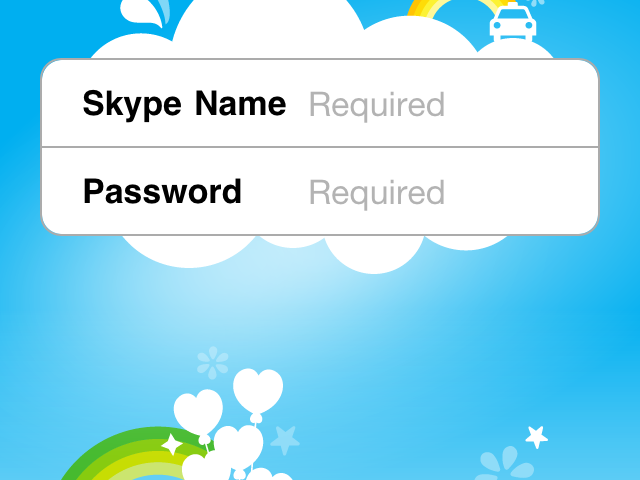

Having open and honest conversations with them about the move will help put their minds at ease.” She goes on to add, “children who feel listened to and supported deal with change better, than those whose feelings are not taken into consideration.” Sarah Kotzé, a child psychologist with more than 20 years’ experience, says, “children understand more than we give them credit for. Have open and honest conversations with your children about the impending moveĬhildren are bound to feel apprehensive or unsure and it’s important for them to be able to articulate those feelings. Listen to your kid’s feelings about moving abroad
#Create skype account for childe software
Rosetta Stone’s language software is another option.

There are many good online options such as Duolingo and Babbel. Try to do this as a family starting about six months before you leave. Discovering a new language together is fun and exciting. Learning a few basic greetings will make them feel empowered and excited to use their new knowledge. Google Maps is great for this and your kids can really get a good idea of how things look before you move. Use technology to ‘visit’ your new country, and if you know where you’ll be living, your new neighbourhood. Whilst it’s important they look ahead to the future, it really does help to be able to look back fondly at special places and people. Your child should start the diary before you move, perhaps collect some interesting local newspaper clippings, and photographs of favourite places and people. It’s often the little things that leave the greatest impression.

This could include routines they normally take for granted, the way the air smells after rain, the colourful flowers on the way to school. Encourage your children to write about the little things in their lives that they’ll miss. Keeping a diary about life in their current home country is a wonderful way for kids to remain connected to the place they’re leaving. This may include photos, coasters from a favourite restaurant, sand or soil from a familiar beach or park, or cards written by friends.

Such books feature wonderful activities, such as creating a memory box where children can collect things that represent the home they’re leaving behind.
#Create skype account for childe how to
For example, Lori Attanasio Woodring’s My Very Exciting, Sorta Scary Big Move and similar books address the entire moving process, understanding change, how to say goodbye with closure, and tips for making new friends. Older children may benefit from a moving workbook, which guides them through the moving process. Talk to them about the move as they colour: It’s all about building familiarity. Try to identify the novel and exciting new experiences that will animate your child.įor younger kids, find artwork or colouring books about their new country. For example, perhaps your new country is known for its good beaches, or has a good sporting culture. Show your kids pictures of their new countryįind out interesting facts about their new home that align with their interests and talk about them. You can begin to create anticipation and excitement in the months and weeks leading up to your departure so that your children look forward to the move as much as you do. The process of settling your children begins even before you touch down in your new country. Will they settle? Will they make new friends? Will they adjust to being surrounded by a new culture and language? As parents, we naturally place our children’s wellbeing ahead of our own, and their happiness is a huge part of a successful relocation. Moving abroad with kids can seem like a minefield of unknowns and pitfalls. In this article, we examine the challenge of preparing children for their first big move.


 0 kommentar(er)
0 kommentar(er)
